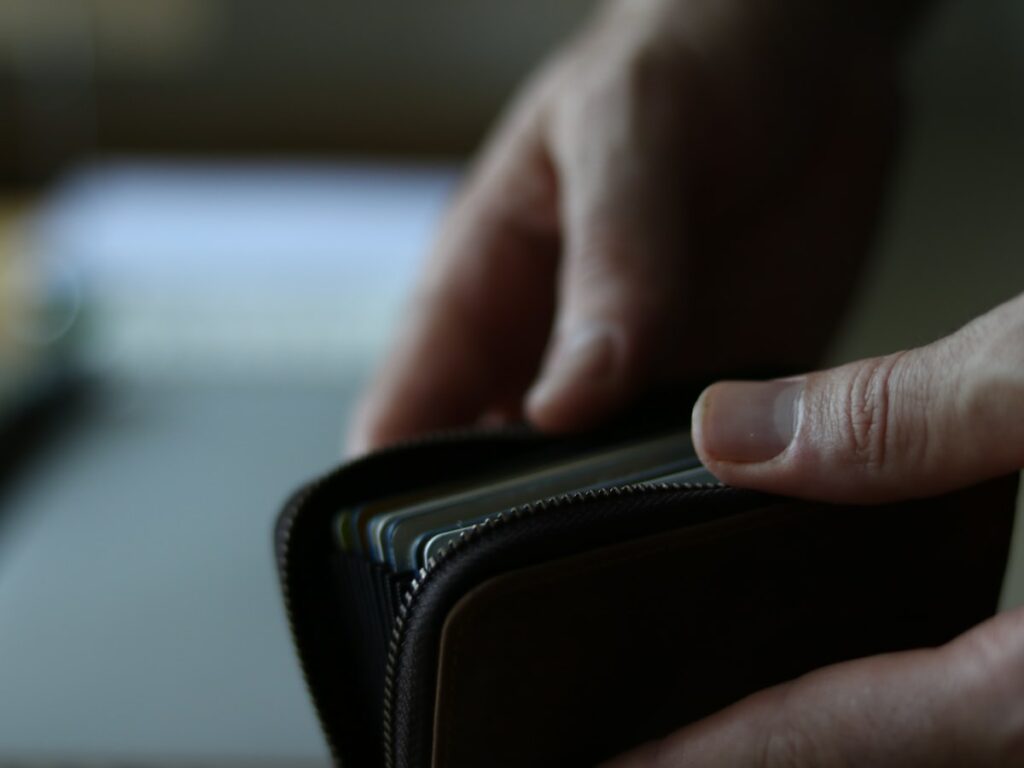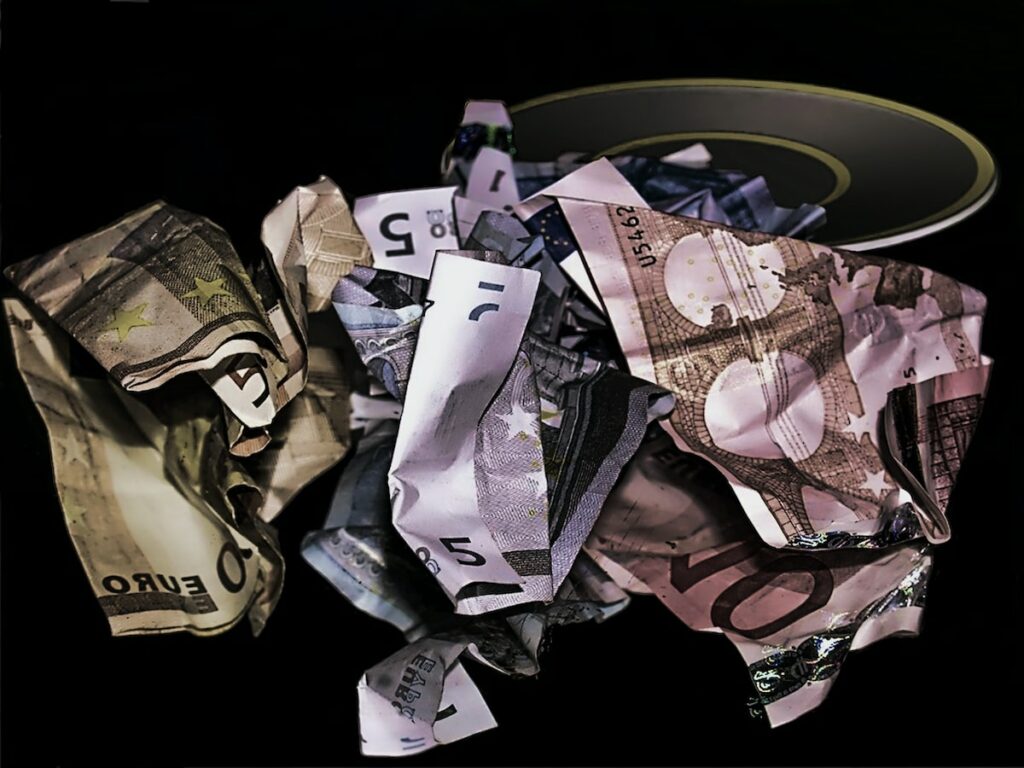Behavioral Economics Definition
Behavioral economics is a subfield of economics that studies the effects of psychological, cognitive, emotional, cultural and social factors on the economic decisions of individuals and institutions. It explores why people sometimes make irrational decisions, and why and how their behavior devotes from the predictions of traditional economic theory.
The Principles of Behavioral Economics
As we dive deeper into the concepts that shape behavioral economics, it's essential to understand three main principles: cognitive bias, bounded rationality, and heuristics.
Cognitive Bias
Cognitive biases are systematic errors in our thought process that affect the judgments and decisions we make. These biases influence our economic decisions, creating a discrepancy between the expected and actual outcome. One typical example of cognitive bias in behavioral economics is the Overconfidence Bias, where an individual may overestimate their abilities, leading to risky financial decisions.
Bounded Rationality
Next, we come to bounded rationality. This principle suggests that people make decisions based on the information they have, which is often incomplete and the context they are in. It questions the traditional economic theory that individuals are always fully rational and have access to all the information needed to make an informed decision. Herbert Simon introduced this concept of bounded rationality, arguing that individuals are only 'satisficing' or choosing what’s good enough rather than finding the absolute best.
Heuristics
Heuristics are mental shortcuts or 'rules of thumb' we use to simplify complex decision-making processes. Although they can improve decision-making efficiency, their use can lead to systematic biases. For instance, the availability heuristic makes people base their judgements on the most immediate examples that come to mind. This could cause investors to overreact to recent market news, driving economic imbalances.
In the framework of behavioral economics, these principles help explain the often-irrational decisions individuals make. By understanding that people have cognitive biases, operate under bounded rationality, and frequently resort to heuristics, we can predict behavior patterns, allowing for more effective economic models and financial strategies.
Behavioral Economics vs Traditional Economics
While both behavioral economics and traditional economics concern themselves with understanding and decoding the multi-faceted aspects of decision-making, their interpretation and approach towards rationality significantly differ.
Interpretation of Human Decision-Making
One of the cornerstones of traditional economics is the assumption that individuals act rationally in pursuit of their self-interests. Traditional economists believe that individuals are fully aware of all the options available to them, they make consistent choices and always strive to optimize their satisfaction.
On the other hand, behavioral economics challenges this "rational agent" model. It suggests that humans are not always rational and their decisions are affected by a range of biases, emotions, and other cognitive limitations. Behavioral economists study the psychological, social, cognitive, and emotional factors that impact the economic decisions that individuals make and how those decisions deviate from those predicted by traditional economic theory.
Perception of Rationality
Under the lens of traditional economics, rationality is defined by perfect information, predictable behavior, and choices aimed at utility maximization. This form of economic thinking posits that people have access to all relevant information, can process that information accurately, and will, therefore, make decisions that will increase their wealth or happiness.
However, behavioral economics tends to view rationality in a more bounded manner, necessarily coined as "bounded rationality." It contends that people's rationality is bounded by the information they have, the cognitive limitations of their minds, and the finite amount of time they have to make decisions. As such, they might not always make the best choice or the one that will maximize their utility. Behavioral economists have identified a number of systematic biases in the ways people make decisions, which often lead to less than rational outcomes.
Overall, the divergence between traditional and behavioral economics lies largely in their assumptions about human behavior—particularly in regards to rational decision making. Behavioral economics, in shedding light on the non-rational elements of decision making, provides a more realistic and nuanced model of human behavior.
Role of Behavioral Economics in Finance
In the realm of finance, behavioral economics brings a unique perspective on how investors make decisions, consequently affecting the dynamics of financial markets.
Psychological Factors and Investment Decisions
Investors aren't always rational beings and their decisions aren't purely based on economic factors. Behavioral economics posits that psychological biases play a significant role in these decisions. For instance, an investor might acquire stocks of a company due to a personal attachment rather than assessing the economic viability of that investment. This is known as Affect Heuristic.
Similarly, many investors tend to exhibit Confirmatory Bias, meaning they tend to look for information that supports their pre-conceived notions, ignoring contrary evidence. This might lead to suboptimal investment decisions since they aren’t factoring in all available information.
Behavioral Economics and Market Trends
Not only do these individual decisions amount to collective behavior that sway market trends, but also such behavioral tendencies may potentially fuel financial bubbles and crashes. Consider Herd Behavior. This psychological phenomenon prompts investors to follow the actions of a larger group, disregarding their personal information signals. For example, if a majority of market players start buying a particular asset, it can trigger other investors to follow suit leading to overvaluation of that asset. Subsequently, when these investors rush to sell off this overpriced asset, the market experiences a sharp downturn.
Take the infamous Dotcom Bubble of early 2000 as an example. The speculation around internet-based companies propelled investors to invest massively without considering the financial potential or performance of these companies. Following the herd, they over-inflated the value only for it to eventually crash when the hype waned.
Despite the apparent irrationality, understanding these behavioral aspects can provide investors and market analysts with significant insights. Through the lens of behavioral economics, they can better predict market trends and make wiser investment decisions that go beyond the numbers and charts. The role of behavioral economics in finance is hence, invaluable – it brings the human factor back into the picture, making economic and financial analysis more realistic.
Implications of Behavioral Economics on Corporate Decision Making
Companies, by understanding behavioral economics, can make more informed decisions and develop more effective corporate strategies.
Influence on Pricing Strategies
Behavioral economics offers insights into how customers perceive and react to different pricing models. For example, concepts like 'anchoring' suggest that the first price a customer sees for a type of product tends to become the reference point for their subsequent judgements. By implementing strategies such as 'price skimming' (initial high pricing followed by gradual reductions), corporations can take advantage of this psychological bias to increase overall profitability.
Impact on Marketing Strategies
Similarly, insights from behavioral economics can fundamentally shift the way corporations plan their marketing strategies. The concept of 'framing', where the presentation of information impacts decision making, can be employed to make advertising campaigns more effective. For instance, studies show that customers respond better to marketing messages emphasizing benefits (gain frames) over those highlighting potential losses. Understanding these nuances can help corporations craft marketing campaigns that resonate more effectively with their target market.
Effect on Product Development
Finally, behavioral economics can significantly influence product development strategies. For instance, the 'endowment effect', which suggests people ascribe more value to things merely because they own them, can be exploited to promote new products or features. Here, corporations can entice customers with trial versions or temporary upgrades, hoping to leverage the endowment effect and convert them into permanent users.
In summary, the principles of behavioral economics can be applied across a range of corporate functions, be it in setting pricing strategies, crafting marketing campaigns, or developing products. By understanding and leveraging these principles, corporations can make more intelligent decisions that ultimately drive growth and profitability.
Impact on Public Policy and Regulation
Behavioral economics has been recognized as a crucial area of study in offering new insights to create effective policy and regulation. Its insights on cognitive biases and rules of thumb can lead to policies that tackle issues with more efficacy.
Nudge Theory and Public Policy
One implementation of behavioral economics in public policy is through the ‘nudge theory.’ Coined by Richard Thaler and Cass Sunstein, the term 'nudge' refers to a proposal that encourages people to make decisions that are in their broad self-interest. It’s not about making choices for people; it’s about making the ‘right’ choice the easiest one.
For instance, in an attempt to address people's behavioral inertia, the UK government introduced the pension auto-enrollment scheme. By default, employees are now enrolled in retirement savings plans, although they can opt out. The result? The participation rates increased substantially. Similarly, 'nudge' tactics led to increased organ donations in several countries by shifting from an opt-in to an opt-out system.
These examples show how our decision-making can be quite susceptible to presentation and layout of choices, or what is known as “choice architecture."
Nudge Theory and Financial Regulation
Applying behavioral economics in financial regulations can also lead to increased transparency and better decision-making. A simple nudge-like requiring companies to disclose more information can help to reduce asymmetry in information, thus promoting healthier competition.
An excellent example of financial regulation is the requirement for credit card companies to explicitly list the total interest cost on statements if only minimum payments are made. For users, the decision-making process is influenced by showing the true cost of sticking to minimum payments, thus 'nudging' them into better financial habits.
In conclusion, policies and regulations benefit from behavioral economics insights, providing frameworks that acknowledge individuals' real, often irrational, behavior. By shifting the norm, creating new defaults, and developing robust choice architectures, these policies help to steer individuals towards decisions that confer wider societal benefits.
Behavioral Economics in Digital Marketing
In the realm of digital marketing, behavioral economics plays a crucial role in business strategies by focusing on understanding and capitalizing on human biases and decision-making patterns. By delving into the psychological and rational processes that inform customer behavior, marketers can predict, and effectively respond to, consumer choices and actions.
Application of Behavioral Economics to Influence Customer Decisions
Digital marketers use behavioral economics principles to influence customers' decision-making. For example, studies have shown that consumers are likely to make a specific choice if they perceive it as the 'default' option. This is known as the 'default effect,' a well-established cognitive bias that marketers exploit to guide consumers towards desired actions. By setting a specific option as default, marketers subtly guide consumers towards making more purchases or signing up for more services.
Another key cognitive bias utilized in marketing is 'loss aversion'. People tend to prefer avoiding losses over acquiring equivalent gains, it's better not to lose $5 than to gain $5. To capitalize on this, marketers often highlight potential losses instead of potential gains. For instance, they might advertise a product by emphasizing the problems that may arise if the consumer does not purchase the product, rather than focusing on the benefits the product offers.
Harnessing Cognitive Biases
Understanding cognitive biases is central to the application of behavioral economics in digital marketing. By knowing how these biases work, marketers can strategically design their advertisements, emails, and websites to play into these biases and effectively influence buying decisions.
For instance, 'social proof' is a cognitive bias where people mimic the actions of others in an attempt to reflect correct behavior. Marketers use this bias by showcasing testimonials and feedback from other consumers. Seeing that other people purchased and were satisfied with a product or service can influence a potential customer to do the same.
In conclusion, the application of behavioral economics in the field of digital marketing involves understanding customer behaviors and their cognitive biases, and then leveraging these insights to design and implement marketing strategies that effectively influence consumers' buying decisions. This knowledge enables marketers to predict consumer behavior and strategize accordingly, compared to simply responding to market trends in real-time.
Challenges and Criticisms of Behavioral Economics
Despite its popularity and broad applications, behavioral economics has not escaped criticisms. Critics of the discipline have raised a few main concerns, some of which we'll aim to tease out here.
Economic Rationality
One major concern revolves around the emphasis behavioral economics places on irrational behavior. Traditional economists argue that the concept of economic rationality, despite its flaws, has been a powerful analytical tool. They contend that the "irrational" behaviors chronicled by behavioral economists may be anomalies rather than the rule, and question whether these behaviors are significant enough to warrant an entirely new branch of economics.
Issues with Practical Implementation
Another concern is the practical implementation of behavioral economics. While theoretical principles may be sound, applying them in real-world settings can prove to be challenging. For instance, 'nudging'—a concept popularized by behavioral economists—requires policymakers to essentially 'guess' what people would want under ideal conditions, which opens the door to manipulation and paternalistic policy. Furthermore, what may work in a controlled experimental setting may not always translate to actual economic environments, given the complexity and dynamism of economies.
Overreliance on Psychology
A common criticism of behavioral economics is its heavy reliance on psychology. Critics argue that this makes the field less scientific in comparison to classical economics, which is largely mathematical. They also maintain that despite the clear intersections between the two disciplines, economics and psychology have different methodologies and assumptions, whose integration in behavioral economics is not always seamless or unproblematic.
Lack of Robustness and Reproducibility
Finally, some critics express reservations about the robustness and reproducibility of experiments in behavioral economics. They point towards instances where experiments have yielded different results when carried out in different cultures or demographic groups, raising questions about the universal applicability of findings in behavioral economics. This is a significant concern because robustness and reproducibility are key criteria for the validity of any scientific study.
These challenges and criticisms of behavioral economics do not necessarily negate its value, but they do highlight areas where more research and refinement is needed. They also underscore the need for a balanced approach in economic theory and policy-making, recognizing the strengths and limitations of both traditional and behavioral economic perspectives.
The Future of Behavioral Economics
### Anticipated Trends
Behavioral economics is set for considerable expansion in the future and this is due in no small part to both technological advancement and shifting societal attitudes. A key development is likely to be the increased integration of refined computational modeling and advanced artificial intelligence techniques into mainstream behavioral economic research.
Artificial intelligence will allow for more complex behavioral models that may improve our predictive capabilities and amplify our understanding of human behavior. Sophisticated machine learning techniques could potentially be used to unmask and quantify the complex psychological dynamics underlying decision-making on a larger scale than what's currently feasible.
### Technological Impact
The proliferation of Big Data and associated analytics technology will enable behavioral economists to access and analyze larger datasets about individual and group behavior. Internet of Things (IoT) enabled devices also promise a treasure trove of real-time and high-resolution data. This could provide unprecedented insights into human decision-making processes and behavioral biases, potentially leading to more accurate economic models.
However, these technological advancements may also pose new ethical questions and challenges related to data privacy and security. Thus, the future of behavioral economics may not only be shaped by technological factors, but also by how society chooses to handle these accompanying ethical issues.
### Societal Considerations
There's an increasing societal shift towards understanding and acknowledging that human decision-making may not always be rational as traditional economics often assumes. This recognition will likely continue to shape the application of behavioral economics, particularly in private sectors like marketing and finance, as well as governmental policies.
For instance, changing societal attitudes towards environmental sustainability, a growing concern globally, could potentially change our understanding and application of behavioral economics. As individuals and organizations grapple with the urgent need for sustainable consumption and production choices, behavioral economics can aid in understanding the decision-making patterns involved and in designing interventions accordingly. Similarly, in a society more aware and accepting of mental health problems, behavioral economics offers valuable inputs for designing psychologically informed economic policies and mental health interventions.
In conclusion, both technological and societal shifts are poised to provide significant momentum to the field of behavioral economics, expanding its scope and depth, and constantly altering its practical applications.









